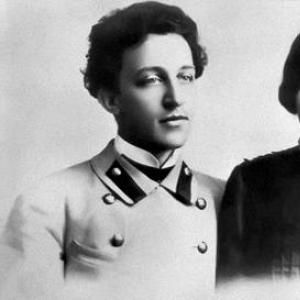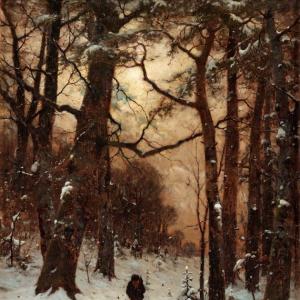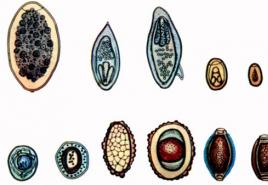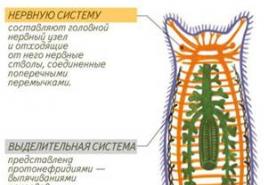Personalities. Castle of the Princess of Oldenburg VS D.V.
Another post expanding the "geography of presence", this time dedicated to the museum-estate of Dmitry Venevitinov, who is no less than the fourth cousin of Alexander Sergeevich Pushkin.
The village of Novozhivotinnoe is located on the left bank of the Don River, 25 versts north of the provincial city of Voronezh. 
Immigrants from the Tula lands of the Venevetinovs settled in these parts in the first half of the 17th century, when in 1622, the Venevsk ataman Terenty was granted lands to the north of Voronezh, which included the village of Zhivotinnoe. 
In the second half of the 17th century, the ataman's grandson Lavrenty Gerasimovich Venevitinov and his son Anton acquired a thousand acres of land on the left bank of the Don, resettling peasants there from the village of Zhivotinnoye. The new settlement, accordingly, became known as Novozhivotinny, and the first mention of it dates back to 1678. 
In 1703, the wooden Archangel church was moved from Starozhivotinnoye and rededicated - the new patrimony of the Venevetinovs became a village. 
The appearance of the estate began to form in the middle of the 18th century, when a park and a pond were laid out on the territory. In 1760-1770, a stone manor house with a mezzanine was built, which was subsequently rebuilt several times. The house was first rebuilt at the beginning of the 19th century, the second - in the 1870s. 
By the beginning of the 19th century, the owners of the estate moved to Moscow, where in 1805 the future poet Dmitry Vladimirovich Venevitinov was born. The Venevetinovs appeared in Novozhivotinnoye only in the summer to rest on the Don, but the children's romantic impressions of life in the village were firmly embedded in the poet's memory. 
The return of Dmitry Venevetinov to the estate happened in 1824, when, after the death of his father, the poet's mother, far from economic affairs, Anna Ivanovna sent her son to deal with the complaints of the peasants. It is believed that this trip influenced the worldview of a nineteen-year-old boy and his attitude to life - in 1825 he wrote philosophical novels about nature. 
The poet's fate turned out to be tragic - in March 1827, not having lived up to the age of 22, he died of pneumonia, which he caught, running lightly dressed from a ball in the Lansky house to his wing. 
After the revolution, the estate was nationalized. Before the war, a music school and an orphanage were sequentially located in it, and during the war years - a military unit. Then the estate fell into disrepair and collapsed until in 1988 work began on its restoration. 
In 1994, the main house as a branch of the Voronezh Regional Literary Museum named after Nikitina opened the doors to the visitors. Relatively recently - in 2012, the reconstruction of the museum, begun two years earlier, was completed, the results of which we can now observe. 
On "preserving the spirit of the estate of the early 19th century" almost 60 million rubles were spent, but there is no smell of antiquity here, as they say. 
In the process of examining the exposition, the feeling does not leave that all these equally inexpressive interiors ... 
... numerous reproductions on white walls and seemingly alien antique furniture exist as if by themselves. 

The only thing that caught my eye was the model of the estate that occupies one of the halls of the first floor. 
Having quickly finished with the interiors, let's head back to the fresh air - to the park ... 
... where paths paved with Sobyanin tiles lead us to the bank of the Don. 
A rotunda gazebo has been recreated on the shore, which is popular, presumably, among local newlyweds.
The Museum-Estate of Dmitry Venevitinov is an architectural monument of the 18th century. federal significance. The estate complex consists of a two-storey mansion, a park with a pond, a rotunda and an observation deck on the Don River. The estate museum is named after the most famous representative of the Venevitinov family - poet, critic, philosopher Dmitry Vladimirovich Venevitinov. The estate was founded at the end of the 17th century by Anton Venevitinov. The first buildings were wooden. In the middle of the 18th century, Anton's son Faddey built a one-story brick house and laid out a park. At the end of the 18th century. the house was expanded and a second floor was added. Today, of all the buildings of that time, the house, the kitchen wing and the entrance gate have been preserved. At the beginning of the 19th century, a gazebo, an observation deck, and an artistic stone fence appeared on the territory of the park. A large garden was planted next to the park.
In the middle of the XIX century. under Mikhail Venevitinov, the estate was again rebuilt and acquired a modern look. At the same time, 100 oaks were planted, only one of them has survived to this day. After 1917, the estate was nationalized, and furniture and household items were removed. In the XX century, the purpose of the estate changed several times. In 1924, a garden partnership organized by the heroes of the Civil War was located here. They rebuilt the estate, which had been damaged during the battles with the Mamontov and Shkuro gangs. In 1931, a branch of the Polytechnic Institute named after N.K. Krupskaya, which was located until the summer of 1942. In 1942-1943, units of the 232 rifle division were quartered on the territory of the estate and the village of Novozhivotinnoye. During these years, most of the manor buildings were destroyed by bombing, the roof of the mansion was seriously damaged. In the summer of 1943, a comprehensive school began its work in the mansion. During these years, a school museum was created in the kitchen wing. The school was located here until 1979. In 1979, the estate was registered with the Inspectorate for the Protection of Monuments as an architectural monument of the 18th century.

From 1979 to 1988, the manor buildings were not used. In 1988, restoration and restoration work began. On the basis of drawings, drawings, diaries, letters and other archival materials of the 19th century, the estate was restored in the form in which it was under Mikhail Venevitinov. In 1994, the Museum-Estate of Dmitry Venevitinov was opened in the restored mansion. In 2005, a monument to the poet and philosopher was erected in front of the house. The author of the monument is the Voronezh sculptor Maxim Dikunov.
In 2010-2013, a new large-scale reconstruction was carried out in the estate. Now the Museum-Estate of Dmitry Venevitinov is a modern museum of the European level, included in the international tourist project "Russian Estate".
BRIEF HISTORY OF THE VENEVITINOVS
The Venevitinovs' noble family played a historically significant role in the social, cultural and political life of Russia. According to one version, the ancestor is Terenty (Terekh) Venevitinov, according to another - Nikifor Venevitinov. At the beginning of the 17th century, they moved from the Venev fortress, from near Tula. The Venevitinovs were atamans of the boyar children and lived in the Belomestnaya (Troitskaya) settlement near the northern border of the Voronezh fortress picket fence. The governor of the fortress paid them a salary for the service and gave them land plots near Voronezh, and also allowed them to engage in duty-free trade.
BRIEF BIOGRAPHY OF DMITRY VLADIMIROVICH VENEVITINOV
Poet, philosopher and translator Dimitri Vladimirovich Venevitinov was born on September 26, 1805 in Moscow. His father, retired guard warrant officer of the Preobrazhensky regiment, Vladimir Petrovich Venevitinov, came from an old noble family of the Voronezh province. Mother Anna Nikolaevna, columnar noblewoman, nee Princess Obolenskaya - Belaya. The Venevitinovs had five children, Dmitry was the third child.
SURVEY AND THEMED EXCURSIONS
The sightseeing tour includes a tour of the eleven exhibition halls of the manor house. During it, there is a story about the most famous representatives of the Venevitinov family, their life path and activities. The tour begins in the lobby, where you will learn about the history of the manor complex. The halls of the 17th-18th centuries tell about the Venevitinovs' service in the Voronezh fortress and their participation in the construction of the first Russian navy at the Voronezh shipyards. Further, we are talking about the history of the Venevitin family: from the ancestor to modern descendants.
LITERARY - MUSIC PROGRAMS
Literary and musical living rooms are inherently unique and makes them such not only the performance of works not found in the repertoires of other performers, but also the very sound of the Schroeder grand piano, which is more than 130 years old. The estate museum is one of the few places in Russia where a musical salon is still held in the tradition of the 19th century.
HOLIDAY EVENTS AND GAMES
Festive and family events are held annually in the estate museum. They are popular and are very popular among museum guests.

Venevitinov, Dmitry Vladimirovich
From Wikipedia, the free encyclopedia
Dmitry Vladimirovich Venevitinov (September 14 (26), 1805, Moscow - March 15 (27), 1827, St. Petersburg) - Russian poet of the romantic direction, translator, prose writer and philosopher.
Dmitry Venevitinov was born on September 14 (26), 1805 in Moscow, in the parish of the now-lost Church of Archdeacon Evpl, which was located at the intersection of Myasnitskaya Street and Milyutinsky Lane. His father, a retired warrant officer of the Semyonovsky regiment, Vladimir Petrovich Venevitinov (1777-1814), came from a wealthy Voronezh noble family. Mother, Anna Nikolaevna, came from the princely family of the Obolensky-Belykh. Through her, Dmitry Venevitinov was in a distant relationship (fourth cousin) with A.S. Pushkin.
Venevitinov grew up in a preserved house in Krivokolenny Lane, where he received a classical education at home, led by his mother (Princess Anna Nikolaevna Obolenskaya). Venevitinov was taught French and Latin, as well as classical literature, by his governor Dorer, a retired French officer, Greek by the Greek Beil (Baylo), and painting by the artist Lapersh. Russian literature was taught by Professor of Moscow University A.F.Merzlyakov, and music, most likely, by I.I.Genishta.
In 1822, Dmitry Venevitinov entered Moscow University, where he became interested in German philosophy and romantic poetry. At the university he attended individual lectures, in particular the courses of A.F. Merzlyakov, I.I.Davydov, M.G. Pavlov and Loder. Participated in the meetings of the student literary circle of N.M. Rozhalin. In 1823 he successfully passed the exam on the university course and in 1824 entered the service in the Moscow Archive of the Collegium of Foreign Affairs (“archival youths” - this is how Pushkin ironically called the employees of this archive in his novel “Eugene Onegin”). In August - September 1824, together with his younger brother Alexei, he visited his Voronezh estates, which was clearly reflected in his letters.
Venevitinov, together with Prince V. F. Odoevsky, organized a secret philosophical "Society of Wisdom", which also included I. V. Kireevsky, A. I. Koshelev, V. P. Titov, N. A. Melgunov and others. MP Pogodin and SP Shevyrev attended the meetings of the circle, not being formally its members. The circle was engaged in the study of German idealist philosophy - the works of F. Schelling, I. Kant, Fichte, Oken, F. Schlegel and others. Venevitinov took an active part in the publication of the Moscow Bulletin magazine.
In November 1826, Venevitinov, under the patronage of Princess Zinaida Volkonskaya, moved from Moscow to St. Petersburg, joining the Asian Department of the Ministry of Foreign Affairs. At the entrance to St. Petersburg, the poet, together with FS Khomyakov and the librarian of Count Laval O. Voshe, who accompanied the wife of the Decembrist prince to Siberia. SP Trubetskoy, Ekaterina Ivanovna (nee Laval was arrested on suspicion of involvement in a conspiracy of the Decembrists. He spent three days under arrest in one of the guardhouses of St. Petersburg. He spent three days under arrest, which aggravated his lung disease, and then, in March, returning lightly dressed from a ball, Venevitinov caught a bad cold.
The Venevitinov and Khomyakov settled in the Lansky house. A stay away from family and friends, away from his native Moscow oppressed the poet, although the circle of contacts in St. Petersburg was quite wide: V.F.Odoevsky and A.I.Koshelev already lived here. A. Delvig was Venevitinov's frequent guest.
The poet died on March 15 (27), 1827 in St. Petersburg, before he was 22 years old. Buried in the cemetery of the Simonov Monastery in Moscow. He bequeathed to put a ring on his finger at the hour of his death - a gift from Zinaida Volkonskaya. When he fell into oblivion, the ring was put on his finger. But suddenly Venevetinov woke up and asked: "Do they marry me?" And he died. A. Pushkin and A. Mitskevich attended the funeral. Reburied in the 1930s. at the Novodevichy cemetery ...
~ ~ ~ ~ ~ ~ ~ ~ ~ ~ ~
Another poet of the Pushkin era.
Biography
Dmitry Venevitinov was born on September 14 (26) in Moscow in the parish of the now lost Church of Archdeacon Evpl, which was located at the intersection of Myasnitskaya Street and Milyutinsky Lane. His father, a retired warrant officer of the Semyonovsky regiment, Vladimir Petrovich Venevitinov (1777-1814), came from a wealthy Voronezh noble family. Mother, Anna Nikolaevna, came from the princely family of the Obolensky-Belykh. Through her, Dmitry Venevitinov was distantly related (a fourth cousin) with A.S. Pushkin.
Venevitinov grew up in a preserved house in Krivokolenny Lane, where he received a classical education at home, led by his mother. Venevitinov was taught French and Latin, as well as classical literature, by his governor Dorer, a retired French officer, Greek by the Greek Beil (Baylo), and painting by the artist Lappers. Russian literature was taught by Moscow University professor A.F. Merzlyakov, and music, most likely, by I.I.Genishta. He perfectly studied Venevitinov and the German language, apparently under the guidance of H. I. Gerke - the tutor of his early deceased brother Peter.
In 1822, Dmitry Venevitinov entered Moscow University, where he became interested in German philosophy and romantic poetry. At the university he attended individual lectures, in particular the courses of A.F. Merzlyakov, I.I.Davydov, M.G. Pavlov and Loder. In 1823 he successfully passed the exam on the university course and in 1824 entered the service in the Moscow Archive of the Collegium of Foreign Affairs (“archival youths” - this is how Pushkin ironically called the employees of this archive in his novel “Eugene Onegin”). In August - September 1824, together with his younger brother Alexei, he visited his Voronezh estates, which was clearly reflected in his letters.
Venevitinov, together with Prince V. F. Odoevsky, organized a secret philosophical "Society of Wisdom", which also included I. V. Kireevsky, A. I. Koshelev, V. P. Titov, N. A. Melgunov and others. Attended the meetings of the circle, not being formally its members, M.P. Pogodin and S.P. Shevyrev. The circle was engaged in the study of German idealistic philosophy - the works of Friedrich Schelling, Immanuel Kant, Fichte, Oaken, Friedrich Schlegel and others. Venevitinov took an active part in the publication of the Moscow Herald magazine.
Venevitinov bequeathed to put on his finger at the hour of his death a ring from Herculaneum - a gift from Zinaida Volkonskaya. When he fell into oblivion, AS Khomyakov put the ring on his finger. Suddenly Venevitinov woke up and asked: "Do they marry me?" And he died. In the 1930s, during the demolition of the Simonov Monastery, the body of D.V. Venevitinov was exhumed and reburied at the Novodevichy Cemetery, 2nd section. 13 row. The ashes of Alexei's mother and brother DV Venevitinov were not reburied. The graves were destroyed. During the exhumation, the ring was removed from the poet's finger by the wife of the architect Pyotr Baranovsky, Maria Yurievna, and is now kept in the Literary Museum. ...
Creation
In his literary activity Venevitinov showed versatile talents and interests. He was not only a poet, but also a prose writer, wrote literary, programmatic and critical articles (his polemic with N. A. Polev about 1 chapter of Pushkin's "Eugene Onegin" is known), translated prose works of German authors, including Goethe and Hoffmann (EA Maimin. "Dmitry Venevitinov and his literary heritage". 1980).
The Venevitinovs wrote only about 50 poems. Many of them, especially the later ones, are filled with deep philosophical meaning, which is a distinctive feature of the poet's lyrics.
The central theme of Venevitinov's latest poems is the fate of the poet. In them, the cult of the romantic poet-chosen one is noticeable, highly exalted above the crowd and everyday life:
... But in a pure thirst for pleasure
Trust not every harp
Not many true prophets
With the seal of mystery on my brow
With gifts of lofty lessons,
With the verb of heaven on earth.
A number of Venevitinov's poems of 1826-1827, written several months before the poet's death ("Testament", "To my ring", "Poet and friend") can rightfully be called prophetic. In them, the author seemed to foresee his early death:
... The soul told me a long time ago:
You will rush in the world with lightning!
You are given to feel everything
But you won't enjoy life.
Venevitinov was also known as a gifted artist, musician, and music critic. When the posthumous edition was being prepared, Vladimir Odoevsky suggested including not only poems, but also drawings and musical works: “I would like to publish them together with the works of my friend, who miraculously combined all three arts”.
It so happened that in one day we visited two fairly well-known and popular attractions of the Voronezh region at once: castle of the princess of Oldenburg and museum-estate of D.V. Venevitinova... Therefore, each time involuntarily there were comparisons of one place with another. Each turned out to be interesting and picturesque in its own way, but left completely different impressions and emotions. In one, we looked for traces of ghosts and former splendor, recalling many legends and mysteries, which in large numbers fanned the castle of the Princess of Oldenburg. They did not know anything about the other, only the famous English writer Ethel Voynich, who for some time worked as a governess at the Venevitinovs' estate, came to mind.
This post will, of course, not be a battle of the titans of the estates, but rather an attempt to understand the historical significance of the people who lived in these places and left loud and not very fame about themselves. Perhaps my story about the castle of the princess of Oldenburg and the museum-estate of D.V. Venevitinova will make you look at these places a little differently.
"What's in a name? "
What's in it? Forgotten long ago ...
By the way, from all the ancient noble family of the Venevitinovs, it was Dmitry Vladimirovich who was chosen, after whose name the estate was named. He was a distant relative of A.S. Pushkin himself was a poet and philosopher. Although Dima's childhood years have just passed here.

Why him? Probably against the background of other relatives, his role in history turned out to be more significant. Indeed, if you read the history of the Venevitinov family, one thing becomes obvious that they all knew how to carry out serviceable service before the sovereign, and some, having “sucked up” in time, make a wonderful career. And, in general, that's all. Dmitry Vladimirovich is considered the founder of a new romantic trend in Russian poetry and an authoritative philosopher of his time.

The most "obsequious" of the Venevitinovs turned out to be Anton Lavrentyevich, who in a rather witty way managed to please Peter the Great himself. This story with the "beard" especially amused me.

At the time when Peter began to introduce all kinds of European innovations on Russian soil, one of the innovations was the deliverance of the noble boyars from the most "valuable" - the beard. At the same time, the nobles did not want to part with her for anything, including those from Voronezh. But Anton Venevitinov decided to approach the matter not only with humor, but also with a long-range scope.

Having shaved off his beard, he did not throw it away, and "ala Santa Claus" tied it to his chin. During the examination, the boyars Peter the First, without suspecting anything, pulled Anton Lavrentievich by the beard, but it safely fell off and remained in his hands. The sovereign appreciated Venevitinov's joke and appointed him to the sovereign's service with a good "salary." So, thanks to his beard and not too much adherence to principles in relation to ancient customs, Anton Lavrentievich made a very good career.
But the names of Alexander Petrovich and Evgenia Maximilianovna of Oldenburg are unlikely to be forgotten by descendants. The contribution they made to the development and prosperity of the Fatherland is very, very significant.

Basically oldenburg castle associated with Evgenia Maximilianovna, because it was she who developed the most vigorous activity in Ramon, which bore numerous fruits. And actually built the most important attraction - the castle.

Having received an estate in the village of Ramon as a gift from the emperor, Evgenia Maximilianovna, with her usual enthusiasm, took up the arrangement of her estates. The low-productivity sugar plant was equipped with new equipment, improved production and built a branch line to the Grafskaya station for the needs of the plant. It subsequently transported not only cargo, but also passengers.
A little later, a confectionery factory appeared. The candies made were not wrapped in simple candy wrappers, but in colorful wrappers, which were worked on by skilled artists. The factory brought the Oldenburgskys world fame, its products have won recognition and a large number of awards at the most prestigious European competitions. In 1911, Voronezh entrepreneurs bought and transported factory equipment from Ramon to Voronezh, where it gave rise to the "sweet" business: the Voronezh confectionery factory exists to this day.


Princess Eugenia built a hospital, a school, workshops, a stud farm, a free canteen for workers, and a water tower. Plumbing and electricity were installed. Evgenia Maximilianovna's "Menagerie" became the beginning for the Voronezh Biosphere Reserve, which in our time is visited with pleasure by guests and local residents.



The whole life of the princess was spent in the labors and cares for others. She personally bypassed all production facilities, kept order and herself tasted the food prepared for the workers. She and her husband became godparents to almost every child born with them in the village.
By the way, Alexander Petrovich Oldenburgsky has no less merit than his wife. He was engaged in charity work, sanitary work in the army, opened the Institute of Experimental Medicine in St. Petersburg, founded the first climatic resort on the Caucasian coast in Gagra.
I think that she has not even listed everything that this married couple did and left for us. And the most remarkable thing is that we still use the fruits of their labors.
What is more attractive: ceremonial splendor or mysterious half-ruin?
The Venevitinovs' estate is a classic noble estate. Having lost a little in the territory - in Soviet times it was a school, an orphanage, and during the war years it was used as a military unit - it still retained its historical features.




At the entrance, everyone is greeted by Dmitry Vladimirovich Venevitinov, immortalized, already known to us from the monument to Vysotsky, by the local sculptor Maxim Dikunov.

The estate is located on the picturesque left bank of the Don. The road to the river passes through a beautiful park, where it is pleasant to stroll along the shady alleys, observe frogs in the pond and rush your thoughts after the fast waters of the Don,

Sitting comfortably where the best river views are.

Undoubtedly, it is pleasant to sit here in silence, trying to imagine how people lived here several hundred years ago, but there is no sincerity and desire to return in all this. Probably, personally, me, the Venevitin family was not very touched in order to want to continue to delve into their history.


Beautiful entrance gates with towers, powerful castle walls - everything speaks of the fundamental nature of the building.

But inside, alas and ah ...



In general, with all these restorations and restorations, there are constantly incomprehensible stories here. It seems that there are investors, and contracts are being signed, and they even started to restore something, but every time everything stops and practically does not move from a dead center.
Stories about mysterious phenomena occurring in the castle do not cease to drag on like a long train. It is said that ghosts appeared to the workers who carried out the repairs, then someone constantly interfered with the work. All these fascinating bikes play well on the innate curiosity of tourists.


And what are the stories about the princess herself. And she drank the blood of young girls, and kept her servants in the basement, giving them to be torn apart by predatory animals, and the Black healer, offended by Yevgeny, cursed the castle and a bunch of other horror stories.
Honestly, going down to the basement, you can't help but believe in such a thing. Gloomy, dilapidated premises, from which it blows with cold and all kinds of riddles.





Again, the question arises: if you do not belong to any community, why make such images in your house?
Riddles, secrets and legends - all this extraordinarily attracts and attracts the Princess of Oldenburg to the castle.

Our natural curiosity haunted us, and we got into a conversation with the caretaker, trying to find out if unusual phenomena were taking place here. The caretaker assured that they had not observed any ghosts, sounds, groans or rustles in the castle during their work. It's a pity…

And yet, there is no smoke without fire. The only thing that still managed to find out that Evgenia Maximilianovna was a very tough lady, and perhaps cruel. Being a real business woman, she was very demanding of her workers in everything and always punished for offenses. Perhaps this quality has given rise to these many sinister stories.
In general, walking through the dilapidated chambers of the castle, it is quite fascinating to look closely at the details and speculate about the unusual history of the people who inhabited it.

How the fate of the castle of the Princess of Oldenburg will develop is still not known. The Venevitinovs' estate was again more fortunate: the museum belongs to cultural heritage sites of federal significance and is sponsored from the same budget. But the lock under the "wing" of the regional budget and the result, as we see, is obvious.
I also really liked the phrase of our friend: “Some have built a hospital, school, factory and have done a bunch of other good deeds, while the merits of others, to put it mildly, pale against their background. What do we see? "
Here's a paradox ...
Castle of the Princess of Oldenburg. How to get there?
The castle is located in the village of Ramon, Voronezh region. Drive along the M4, turn right at the sign (if you are coming from Voronezh) and continue for another 7 kilometers.
Coordinates: 51.917805, 39.346161
From Voronezh to the castle 47.5 kilometers, from Moscow - 495.
Address: Voronezh region, p. Ramon, st. School, 27
Museum-estate of D.V. Venevitinova. How to get there?
The estate is located in the village. Novozhivotinnoe, Voronezh Region. Located on the left side of the M4 highway (if you go from Voronezh).
Coordinates: 51.890331, 39.167831
From Voronezh to Venevitinov's estate, only 39 kilometers.







